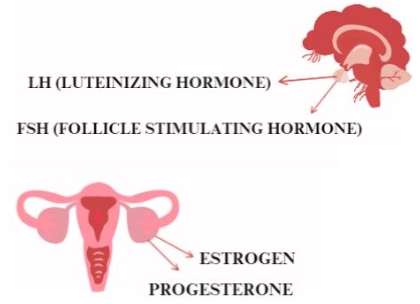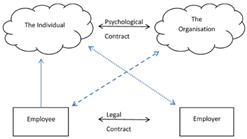“Brain Fog” as a symptom of the “Long-COVID” syndrome, its impact on the mental health of those affected by COVID-19 and its treatment
Abstract
The impact of the COVID-19 pandemic on people’s lives is dramatic. The relationship between Brain Fog and Long-COVID, the consequences for the mental health of patients, and its treatment are the objectives of this systematic review. An electronic search was carried out, and the databases searched included PubMed, Emerald, EMBASE, and Science Direct. Regarding the review, data collection included English papers with full bibliographies, abstracts, and keywords, published in electronic form in the last 2 years (2020–2022). The findings indicate the importance of a holistic approach and treatment for Post-COVID Brain Fog. It is also necessary for healthcare workers to investigate the biological and psychosocial background of Brain Fog symptoms in detail to provide the appropriate health service. However, more scientific studies are needed on the effectiveness of treatment approaches for the benefit of public health and well-being.
References
Asadi‐Pooya, A. A., Akbari, A., Emami, A., et al. (2021). Long COVID syndrome‐associated brain fog. Journal of Medical Virology, 94(3), 979–984. Portico. https://doi.org/10.1002/jmv.27404
Becker, J. H., Lin, J. J., Doernberg, M., et al. (2021). Assessment of Cognitive Function in Patients After COVID-19 Infection. JAMA Network Open, 4(10), e2130645. https://doi.org/10.1001/jamanetworkopen.2021.30645
Bhaiyat, A. M., Sasson, E., Wang, Z., et al. (2022). Hyperbaric oxygen treatment for long coronavirus disease-19: a case report. Journal of Medical Case Reports, 16(1). https://doi.org/10.1186/s13256-022-03287-w
D’Arcy, R. C. N., Sandhu, J. K., Marshall, S., et al. (2021). Mitigating Long-Term COVID-19 Consequences on Brain Health. Frontiers in Neurology, 12. https://doi.org/10.3389/fneur.2021.630986
Davis, H. E., Assaf, G. S., McCorkell, L., et al. (2021). Characterizing long COVID in an international cohort: 7 months of symptoms and their impact. EClinicalMedicine, 38, 101019. https://doi.org/10.1016/j.eclinm.2021.101019
Ding, H., Yin, S., Cheng, Y., et al. (2020). Neurologic manifestations of nonhospitalized patients with COVID‐19 in Wuhan, China. MedComm, 1(2), 253–256. Portico. https://doi.org/10.1002/mco2.13
Fernández-de-las-Peñas, C., Cancela-Cilleruelo, I., Rodríguez-Jiménez, J., et al. (2023). Trajectory of post-COVID brain fog, memory loss, and concentration loss in previously hospitalized COVID-19 survivors: the LONG-COVID-EXP multicenter study. Frontiers in Human Neuroscience, 17. https://doi.org/10.3389/fnhum.2023.1259660
Ferrucci, R., Dini, M., Groppo, E., et al. (2021). Long-Lasting Cognitive Abnormalities after COVID-19. Brain Sciences, 11(2), 235. https://doi.org/10.3390/brainsci11020235
Hawkins, J., Hires, C., Keenan, L., et al. (2022). Aromatherapy blend of thyme, orange, clove bud, and frankincense boosts energy levels in post-COVID-19 female patients: A randomized, double-blinded, placebo controlled clinical trial. Complementary Therapies in Medicine, 67, 102823. https://doi.org/10.1016/j.ctim.2022.102823
Heiberg, K. E., Heggestad, A. K. T., Jøranson, N., et al. (2022). ‘Brain fog’, guilt, and gratitude: experiences of symptoms and life changes in older survivors 6 months after hospitalisation for COVID-19. European Geriatric Medicine, 13(3), 695–703. https://doi.org/10.1007/s41999-022-00630-8
Hellmuth, J., Barnett, T. A., Asken, B. M., et al. (2021). Persistent COVID-19-associated neurocognitive symptoms in non-hospitalized patients. Journal of NeuroVirology, 27(1), 191–195. https://doi.org/10.1007/s13365-021-00954-4
Heneka, M. T., Golenbock, D., Latz, E., et al. (2020). Immediate and long-term consequences of COVID-19 infections for the development of neurological disease. Alzheimer’s Research & Therapy, 12(1). https://doi.org/10.1186/s13195-020-00640-3
Hossain, M. M., Das, J., Rahman, F., et al. (2023). Living with “long COVID”: A systematic review and meta-synthesis of qualitative evidence. PLOS ONE, 18(2), e0281884. https://doi.org/10.1371/journal.pone.0281884
Huff, C. (2020). Delirium, PTSD, Brain Fog: The aftermath of surviving COVID-19. American Psychological Association, 51(6).
Hugon, J., Msika, E.-F., Queneau, M., et al. (2021). Long COVID: cognitive complaints (brain fog) and dysfunction of the cingulate cortex. Journal of Neurology, 269(1), 44–46. https://doi.org/10.1007/s00415-021-10655-x
Humphreys, H., Kilby, L., Kudiersky, N., et al. (2021). Long COVID and the role of physical activity: a qualitative study. BMJ Open, 11(3), e047632. https://doi.org/10.1136/bmjopen-2020-047632
Ismail, Z., Elbayoumi, H., Fischer, C. E., et al. (2017). Prevalence of Depression in Patients With Mild Cognitive Impairment. JAMA Psychiatry, 74(1), 58. https://doi.org/10.1001/jamapsychiatry.2016.3162
Jennings, G., Monaghan, A., Xue, F., et al. (2021). A Systematic Review of Persistent Symptoms and Residual Abnormal Functioning following Acute COVID-19: Ongoing Symptomatic Phase vs. Post-COVID-19 Syndrome. Journal of Clinical Medicine, 10(24), 5913. https://doi.org/10.3390/jcm10245913
Jennings, G., Monaghan, A., Xue, F., et al. (2022). Comprehensive Clinical Characterisation of Brain Fog in Adults Reporting Long COVID Symptoms. Journal of Clinical Medicine, 11(12), 3440. https://doi.org/10.3390/jcm11123440
Kaseda, E. T., & Levine, A. J. (2020). Post-traumatic stress disorder: A differential diagnostic consideration for COVID-19 survivors. The Clinical Neuropsychologist, 34(7–8), 1498–1514. https://doi.org/10.1080/13854046.2020.1811894
Krishnan, K., Lin, Y., Prewitt, K.-R. M., et al. (2022). Multidisciplinary Approach to Brain Fog and Related Persisting Symptoms Post COVID-19. Journal of Health Service Psychology, 48(1), 31–38. https://doi.org/10.1007/s42843-022-00056-7
Matias-Guiu, J. A., Delgado-Alonso, C., Yus, M., et al. (2021). “Brain Fog” by COVID-19 or Alzheimer’s Disease? A Case Report. Frontiers in Psychology, 12. https://doi.org/10.3389/fpsyg.2021.724022
Miglis, M. G., Goodman, B. P., Chémali, K. R., et al. (2021). Re: ‘Post-COVID-19 chronic symptoms’ by Davido et al. Clinical Microbiology and Infection, 27(3), 494. https://doi.org/10.1016/j.cmi.2020.08.028
Nalbandian, A., Sehgal, K., Gupta, A., et al. (2021). Post-acute COVID-19 syndrome. Nature Medicine, 27(4), 601–615. https://doi.org/10.1038/s41591-021-01283-z
Nawrot, J., Gornowicz-Porowska, J., Budzianowski, J., et al. (2022). Medicinal Herbs in the Relief of Neurological, Cardiovascular, and Respiratory Symptoms after COVID-19 Infection A Literature Review. Cells, 11(12), 1897. https://doi.org/10.3390/cells11121897
Ocon, A. J. (2013). Caught in the thickness of brain fog: exploring the cognitive symptoms of Chronic Fatigue Syndrome. Frontiers in Physiology, 4. https://doi.org/10.3389/fphys.2013.00063
Rathi, A., Jadhav, S. B., & Shah, N. (2021). A Randomized Controlled Trial of the Efficacy of Systemic Enzymes and Probiotics in the Resolution of Post-COVID Fatigue. Medicines, 8(9), 47. https://doi.org/10.3390/medicines8090047
Ritchie, K., Chan, D., & Watermeyer, T. (2020). The cognitive consequences of the COVID-19 epidemic: collateral damage? Brain Communications, 2(2). https://doi.org/10.1093/braincomms/fcaa069
Romero-Ortuno, R., Jennings, G., Xue, F., et al. (2022). Predictors of Submaximal Exercise Test Attainment in Adults Reporting Long COVID Symptoms. Journal of Clinical Medicine, 11(9), 2376. https://doi.org/10.3390/jcm11092376
Scholz, U., Bierbauer, W., & Lüscher, J. (2023). Social Stigma, Mental Health, Stress, and Health-Related Quality of Life in People with Long COVID. International Journal of Environmental Research and Public Health, 20(5), 3927. https://doi.org/10.3390/ijerph20053927
Stefano, G. B., Ptacek, R., Ptackova, H., et al. (2021). Selective Neuronal Mitochondrial Targeting in SARS-CoV-2 Infection Affects Cognitive Processes to Induce ‘Brain Fog’ and Results in Behavioral Changes that Favor Viral Survival. Medical Science Monitor, 27. https://doi.org/10.12659/msm.930886
Stefanou, M.-I., Palaiodimou, L., Bakola, E., et al. (2022). Neurological manifestations of long-COVID syndrome: a narrative review. Therapeutic Advances in Chronic Disease, 13, 204062232210768. https://doi.org/10.1177/20406223221076890
Sugiyama, A., Miwata, K., Kitahara, Y., et al. (2022). Long COVID occurrence in COVID-19 survivors. Scientific Reports, 12(1). https://doi.org/10.1038/s41598-022-10051-z
Tabacof, L., Tosto-Mancuso, J., Wood, J., et al. (2022). Post-acute COVID-19 Syndrome Negatively Impacts Physical Function, Cognitive Function, Health-Related Quality of Life, and Participation. American Journal of Physical Medicine & Rehabilitation, 101(1), 48–52. https://doi.org/10.1097/phm.0000000000001910
Taube, M. (2023). Depression and brain fog as long-COVID mental health consequences: Difficult, complex and partially successful treatment of a 72-year-old patient—A case report. Frontiers in Psychiatry, 14. https://doi.org/10.3389/fpsyt.2023.1153512
Wang, Q., Davis, P. B., Gurney, M. E., et al. (2021). COVID‐19 and dementia: Analyses of risk, disparity, and outcomes from electronic health records in the US. Alzheimer’s & Dementia, 17(8), 1297–1306. Portico. https://doi.org/10.1002/alz.12296
World Health Organization. (2022). WHO Coronavirus (COVID-19) Dashboard. Available online: https://COVID19.who.int/ (accessed on 25 July 2022).
Zilberman-Itskovich, S., Catalogna, M., Sasson, E., et al. (2022). Hyperbaric oxygen therapy improves neurocognitive functions and symptoms of post-COVID condition: randomized controlled trial. Scientific Reports, 12(1). https://doi.org/10.1038/s41598-022-15565-0
Copyright (c) 2024 Anna Bilali, Frosyna Anagnosti, Pinelopi Stamati, Kiriaki Gatanas, Nikolaos Thalassinos, Agis Terzidis

This work is licensed under a Creative Commons Attribution 4.0 International License.









